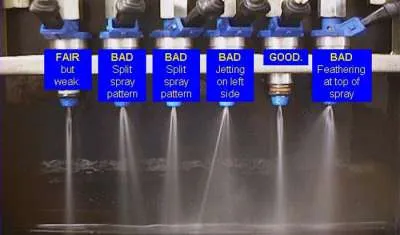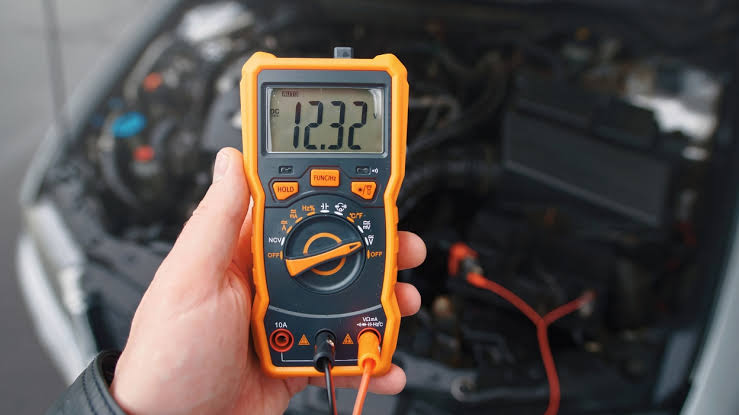Can You Overcharge a Lawn Mower Battery?

When it comes to maintaining your lawn mower, one key aspect is ensuring the battery stays charged and in good condition. But can you overcharge a lawn mower battery? It’s a common concern for many lawn mower owners, especially with the growing popularity of battery-powered models. In this article, we’ll discuss whether overcharging is possible, the risks involved, and how to properly charge your lawn mower battery to avoid damage.
Understanding Lawn Mower Batteries
Before diving into the risks of overcharging, let’s first understand the basics of lawn mower batteries.
Types of Lawn Mower Batteries
Lawn mower batteries typically fall into two categories:
- Lead-Acid Batteries: These are the more traditional type, often found in gas-powered mowers or older electric mowers. They are relatively inexpensive but require more maintenance.
- Lithium-Ion Batteries: These are more common in modern, battery-powered mowers. They are lightweight, have a longer lifespan, and don’t require as much maintenance as lead-acid batteries.
Both types of batteries require proper charging to ensure they work efficiently and last for their expected lifespan.
Can You Overcharge a Lawn Mower Battery?
Yes, it is possible to overcharge a lawn mower battery, especially if you’re using an older charger or one that isn’t designed for your specific battery type. Overcharging can lead to several negative consequences, including damage to the battery, reduced battery life, and even safety risks like leaks or overheating. However, modern chargers typically include built-in safeguards to prevent overcharging.
Overcharging with Lead-Acid Batteries
Lead-acid batteries are particularly susceptible to overcharging. If left on the charger for too long, the battery can become “gassed,” meaning the electrolyte inside the battery turns into gas and starts to leak. This can cause the battery to lose its ability to hold a charge and even shorten its overall lifespan.
Overcharging with Lithium-Ion Batteries
Lithium-ion batteries are more sophisticated and typically have built-in protection circuits to prevent overcharging. However, if you use a charger that isn’t designed for lithium-ion batteries, overcharging is still possible. Overcharging a lithium-ion battery can result in overheating, reduced battery life, and, in extreme cases, it could pose a fire risk.
Risks of Overcharging a Lawn Mower Battery
Overcharging a lawn mower battery can lead to several issues:
1. Battery Damage
Overcharging can cause the battery to become damaged, making it unable to hold a charge. For lead-acid batteries, overcharging can lead to the corrosion of the battery plates, while lithium-ion batteries can experience a decrease in capacity over time.
2. Shortened Battery Life
When a battery is overcharged regularly, its overall lifespan will be reduced. Lead-acid batteries may fail completely after extended overcharging, while lithium-ion batteries might lose their ability to retain a charge.
3. Heat Build-Up
Overcharging generates excess heat, which can lead to swelling or leakage, especially in lead-acid batteries. In the worst case, excessive heat buildup can even cause a fire, particularly with lithium-ion batteries.
4. Electrolyte Loss (For Lead-Acid Batteries)
In lead-acid batteries, overcharging can cause the electrolyte (the liquid inside the battery) to evaporate. This can result in a dry battery, which will no longer function properly and will need to be replaced.
How to Properly Charge a Lawn Mower Battery
To avoid overcharging and extend the life of your lawn mower battery, follow these steps:
1. Use the Right Charger
Ensure you’re using the correct charger for your lawn mower battery. If you have a lead-acid battery, use a charger designed for lead-acid batteries. For lithium-ion batteries, use a charger designed specifically for lithium-ion cells. These chargers often have built-in features to prevent overcharging.
2. Monitor Charging Times
If your charger doesn’t have an automatic shutoff feature, monitor the charging time carefully. Most lawn mower batteries take between 4-8 hours to fully charge. Refer to the manufacturer’s guidelines to find the recommended charging time.
3. Use Automatic or Smart Chargers
Many modern chargers are equipped with automatic shut-off or “smart charging” capabilities. These chargers will stop charging once the battery is full, preventing overcharging. Always consider using an automatic charger to protect your battery.
4. Avoid Charging Continuously Overnight
It’s tempting to leave your lawn mower charging overnight, but this can lead to overcharging if the charger doesn’t have an automatic shutoff. Try to charge your mower during the day so you can monitor it, or use a timer or smart charger to cut off power once fully charged.
5. Regularly Check Battery Condition
Inspect your battery periodically for any signs of damage, leaks, or corrosion. For lead-acid batteries, ensure the electrolyte levels are topped up, and for lithium-ion batteries, check for any bulging or unusual heat while charging.
6. Keep the Battery in a Safe Location
Avoid charging your battery in an area that’s too hot or too cold. Extreme temperatures can damage your battery. Ideally, charge it in a cool, dry place.
What to Do if You Suspect Overcharging
If you suspect that your lawn mower battery has been overcharged, here’s what you should do:
- Unplug the Charger Immediately: If you notice signs of overcharging, such as the battery feeling unusually hot, unplug the charger right away.
- Inspect the Battery: Check for any signs of damage, such as swelling, leakage, or corrosion around the terminals. If the battery is leaking or corroded, it might be time to replace it.
- Test the Battery: After letting it cool down, test the battery to see if it still holds a charge. If it doesn’t, you may need to replace the battery.
- Consult a Professional: If you’re unsure about your battery’s condition, take it to a professional for an inspection.
Conclusion
In conclusion, yes, you can overcharge a lawn mower battery, especially if you’re not using the right charger or charging it incorrectly. Overcharging can cause damage, shorten the lifespan of your battery, and even pose safety risks. To avoid overcharging, always use the correct charger, monitor charging times, and consider using a smart charger with an automatic shut-off feature.
By taking the right precautions and caring for your lawn mower battery, you can ensure it stays in good condition and powers your mower effectively for years to come.





